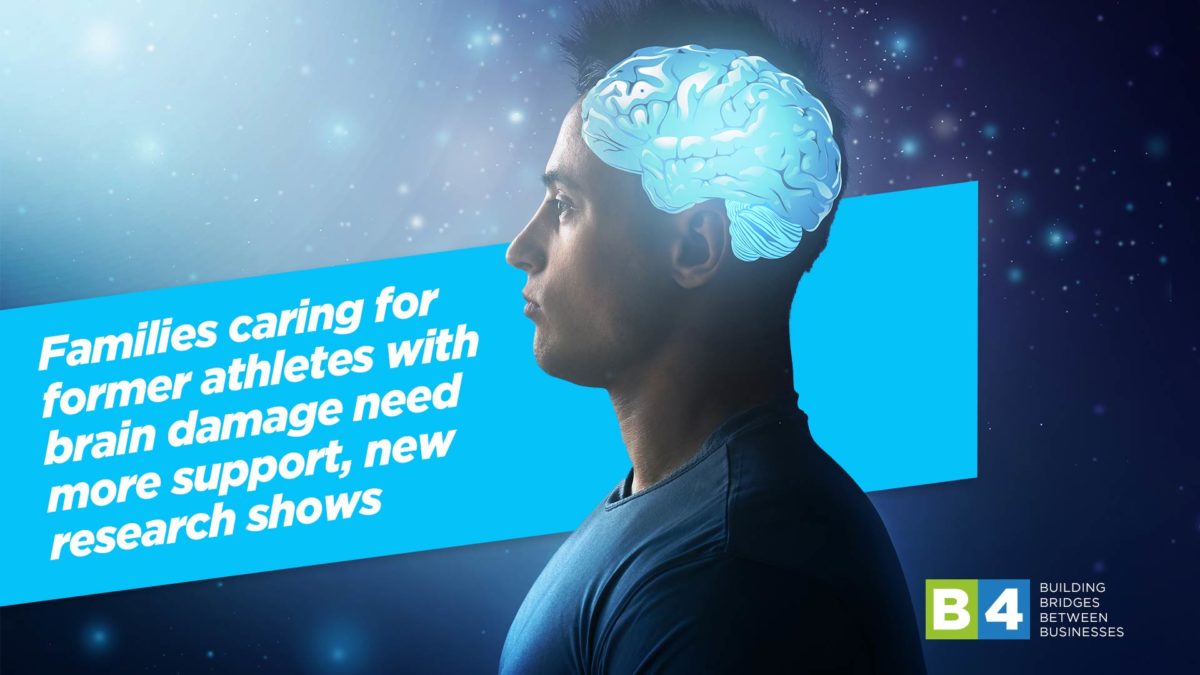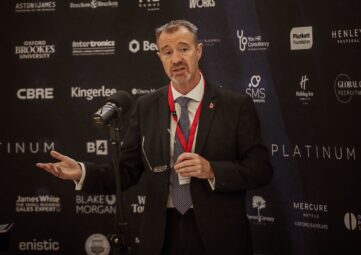
Families caring for former athletes with brain damage need more support, new research shows
Following former Rugby World Cup winner Steve Thompson’s diagnosis of early-onset dementia at 42 and probable chronic traumatic encephalopathy (CTE), and a number of NFL and rugby league players facing a similar prognosis, a new research study explores the experiences of family members of former athletes with CTE.
- Relatives of deceased athletes who had CTE were interviewed in depth
- Athletes’ neurodegenerative decline had severe emotional consequences for family
- Families in ‘desperate need’ of support, care and answers, say researchers
While the focus of much existing research is on the athletes themselves, this study tells the stories of family members who lived with a former athlete with CTE, seeing them go through severe cognitive and behavioural decline before dying. The researchers interviewed partners and children of the athletes to understand the challenges they faced, as well as their emotional responses and coping strategies as they lived through these experiences.
Families in desperate need of help, support and care
Former England rugby player and Rugby World Cup winner Steve Thompson welcomed the research: “When I was diagnosed with dementia and probable CTE I wasn’t just worried about me but I was worried about my family. This doesn’t just affect me, it has an impact on all of us. I’d say it has a bigger effect on my family than me. So to know people are working on and researching ways to make life easier for us and to know how to deal with things when they are bad is important.”
Dr Adam J White, Executive Director of the Concussion Legacy Foundation UK and Lecturer in Sport and Coaching Sciences at Oxford Brookes University said, “The damage of repetitive head impacts on athletes’ brains has been pulled into the spotlight over recent years. But we have forgotten the impact that CTE has on the partners, children, brothers, and sisters who must witness first-hand the destructive nature of this condition. Their stories and experiences are also important, and they too are a group of people desperately in need of help, support, care, and answers. Through this research, we hope to shine a spotlight on this group and their needs.”
The study, led by the University of Winchester in collaboration with Bournemouth University and Oxford Brookes University, involved in-depth interviews with relatives of deceased athletes, who had CTE linked to repetitive head impacts from playing sport. The athletes were primarily players of American football, both amateur and professional, and were aged between 47 and 74 years of age when they died.
All participants attended the Legacy Family Huddle in Orlando, Florida, USA, in February 2020 – an event organised by the Concussion Legacy Foundation that seeks to provide support to families as well as connect them with each other.
Findings show consequences for family members
Researchers found:
- An athlete’s neurodegenerative decline had severe emotional consequences for family members, including the confusion of not understanding what was happening, a sense of hopelessness and frustration at witnessing such a change in people they love, as well as not knowing what to do to help and support their family member
- Other emotional responses included embarrassment and shame, especially when erratic behaviour took place in public, fear for themselves and others when behaviour became aggressive, and guilt prompted by feeling they had failed to effectively help and support the family member during their decline
- Limited coping strategies were employed by family members during the life of the athlete, with participants struggling to come to terms with the changes in their family members during this time
- The most prominent coping strategy came after the death of the family member, when people began to try to find answers concerning the illness. This understanding reduced confusion and brought some relief
- Attendance at the Huddle event gave participants the opportunity to share their experiences with others who were in similar situations
- Many of the family members have since become advocates for change in professional sport, to prioritise the health and safety of players over and above sport itself.
The study findings will be presented as an ‘ethnodrama’ in the form of a play script produced using the direct quotes of participants. This innovative and thought-provoking approach allows vivid emotions and experiences to be strongly conveyed to a broad audience, including families currently experiencing similar challenges.
Dr Matt Smith, Senior Lecturer in Sport and Exercise Psychology at the University of Winchester, who led the study said: “Our study aims to contribute to the under-examined social aspect of brain injuries by providing a thorough examination of the experiences of family members of athletes with neurodegenerative disease. We hope that understanding the emotions and coping strategies employed by family members at different timepoints of the disease will allow the findings to be used to support other families who are at various stages of living with and caring for an athlete with neurodegenerative disease.”
Athletes with Neurodegenerative Disease: A Phenomenological Exploration of Family Members’ Experiences is published in The Qualitative Report.
More in Community Building

A Growing Desire for Better Business
The Better Business Ecosystem is raising awareness and showcasing the wide variety of ways businesses can have a more positive impact on society, communities and the environment, by embedding great business practices across their companies.

Why joining a community of business leaders can enhance your reputation and credibility
I read a LinkedIn post recently that reassured business owners that if they’d managed to keep their businesses going during recession, Brexit, COVID and the cost-of-living crisis that they deserved a huge pat on the back and shouldn’t ‘beat themselves up’. Easier said than done when costs are rising and doing business seems to get harder rather than easier, but the sentiment was well-placed.

Why it’s important for Business Leaders to be exposed to new...
Nobody likes a ‘know it all’ and let’s face it, there’s no such thing. At the other end of the scale, many of us don’t create enough time to take on board new ideas, innovation and creativity in whatever format. How many times have you been recommended to read a book, get sent the link, go on Amazon, maybe even buy it but it just sits on your bookshelf? Come to think of it, as an aside, just think about that for a second….I wonder what the actual percentage of books purchased are actually read? Frightening thought!
From this author

Olympics 2024: Getting the balance right in sports nutrition
As the countdown to the Olympics gets underway, the focus for athletes is on getting fitter, faster, and stronger, but at what cost? Qualified sports nutritionist Clare Shaw, a Senior Sports Lecturer at Oxford Brookes University, and a practitioner on the Sport and Exercise Nutrition register (SENr), is researching the impact of low energy availability in athletes for her PhD. Here she discusses her research and offers tips for balancing energy intake and output.

Oxford Brookes University to showcase cutting-edge AI research at free week-long...
Oxford Brookes University will be showcasing the most recent developments and breakthroughs in artificial intelligence research at its annual Festival of AI this week. The festival runs from today until 7 June and includes a series of free workshops that will explore how AI can revolutionise schools, business and society.

Local business leaders in Oxfordshire tell Chancellor: Keep graduate visa route...
Oxfordshire Local Enterprise Partnership (OxLEP) has joined university and business leaders to warn the government against watering down or scrapping the graduate visa route.

